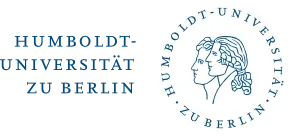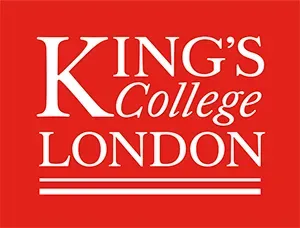Combining online sessions and an intensive in-person week, participants will investigate how faith traditions, taboos, and collective memory shape both division and healing in contemporary societies.
Religion, conflict, and reconciliation are often entangled with deep taboos – the unspoken, the silenced, the excluded. This interdisciplinary programme invites early career researchers to explore how religious traditions, texts, and communities engage with, resist, or perpetuate such taboos in conflicted societies. Rather than avoid the difficult, it seeks to interrogate the forbidden: What can’t be said? What is left out? How do these silences shape processes of healing, memory, and justice?
Through a combination of scholarly presentations, workshops, peer feedback, and thematic seminars, participants will examine how religion can both fuel division and foster repair. They will analyze how taboos – around gender, texts, history, or power – structure religious and social life, and develop reflexive methods to study religious violence, trauma, dissent, and reconciliation. The programme encourages participants to adopt interdisciplinary perspectives drawn from theology, philosophy, anthropology, history, literature, media studies, law, and political science.
Key questions include:
- How do art, narrative, and aesthetic acts confront religious taboos or mediate trauma?
- In what ways do gender norms and religious authority intersect in conflict and reconciliation?
- Can the interpretation of sacred texts become a site of contestation, exclusion, or repair?
- How do memory, silence, and institutional power shape religious complicity, resistance, or restitution in post-conflict settings?
- What is the role of empathy, exhaustion, and care ethics in religious communities dealing with trauma and pluralism?
- How do sacred spaces and symbols become contested ground in ecological, spatial, or political struggles?
- Which new forms of religious dissent – feminist, queer, ecological – challenge internal taboos and open paths to reconciliation?
Participants will leave the programme with new conceptual tools, interdisciplinary insights, and a supportive network for advancing critical research at the intersection of religion, conflict, and reconciliation.
Course format and schedule
Online
- 22 January: this first 2-hour online session will serve as an introduction to the themes and purposes. It will also allow selected applicants to discover the small group they have each been assigned.
- 18 February: this online session will consist of a 2-hour online methodological seminar. PhD students and postdoctoral researchers will be separated into two groups to better address their specific needs.
- 11 March: this online session will be an interactive workshop. Gathered within their small group, each participant will be given the opportunity to talk about their paper-in-progress (10 mins) and receive feedback in a constructive and collaborative setting (10 mins).
- 1 June: after the residential week at UCLouvain, each small group will gather online to look back on the learning journey. Beforehand, all participants will be asked to complete a mandatory survey that will serve as the starting point for this 2-hour discussion.
On site at UCLouvain
- 18 to 22 May 2026: Residential week at UCLouvain, Louvain-la-Neuve campus.
Who can apply?
Open to PhD students, postdocs, and early career researchers across disciplines.
In order to apply, you will be asked to submit a short abstract clearly outlining the research question, the methodology, and the connection to the summer school theme.
Learning outcome
- Practical tools on writing and presenting peer-reviewed academic papers.
- Critical understanding of the intersections between Religion, Conflict, Reconciliation and Taboos.
- Training in conducting interdisciplinary research and interacting with researchers coming from a wide array of disciplines.
ECTS
- PhD student participants will be awarded 5 ECTS.
- All participants will receive a certificate of participation.
- Following the course, a publication of selected papers may be considered.
Workload & Assessment
The estimated workload for this course is approximately 125 hours.
Form of assessment:
- Participation to a minimum of 3 online sessions (out of 4)
- 10-page scholarly paper and 20-min academic presentation
- Active reading and reviewing of the other participants’ papers and keynote speakers’ syllabi
- Attendance to all keynote addresses and young researchers’ seminar sessions
Participants will be assessed on a pass/fail basis based on the realization of the activities described above.
How to apply
Participants need to complete the application form by 15 December and will receive a response by 15 January.
In order to apply, you will be asked to submit a short abstract clearly outlining the research question, the methodology, and the connection to the summer school theme.
Funding
- No participation fees
- Included: Daily breaks and lunches, excursions
- Not included: Travel, accommodation and evening meals are to be covered by participants.
The course is organized as a blended intensive program (BIP) within Erasmus+, and hence you may apply for a grant at your home university.
Please contact the mobility office at your university for more information:
- Aarhus University: aarhus@circle-u.eu
- University of Belgrade: Nikola Savic nikola.savic@rect.bg.ac.rs
- Humboldt Universität zu Berlin: berlin@circle-u.eu
- King’s College London: Students are not eligible for Erasmus+ funding, but may have access to internal funding. Please check for funding opportunities or contact the Circle U. Team for more information: circle-u@kcl.ac.uk
- UCLouvain: no grant is available, as the course is hosted by UCLouvain
- University of Oslo: erasmus-uio@admin.uio.no
- Université Paris Cité: circleu.iro@u-paris.fr and online at u-paris.fr
- University of Pisa: circleU.erasmus@unipi.it and on our website.
- University of Vienna: circle-u@univie.ac.at
Organiser and partners
This course is hosted by UCLouvain. University of Oslo and University of Vienna are partner institutions.
Contact details
- Academic Coordinator: Geert Van Oyen (geert.vanoyen@uclouvain.be)
- Administrative Liaison: Amata Mbani (amata.mbani@uclouvain.be)









